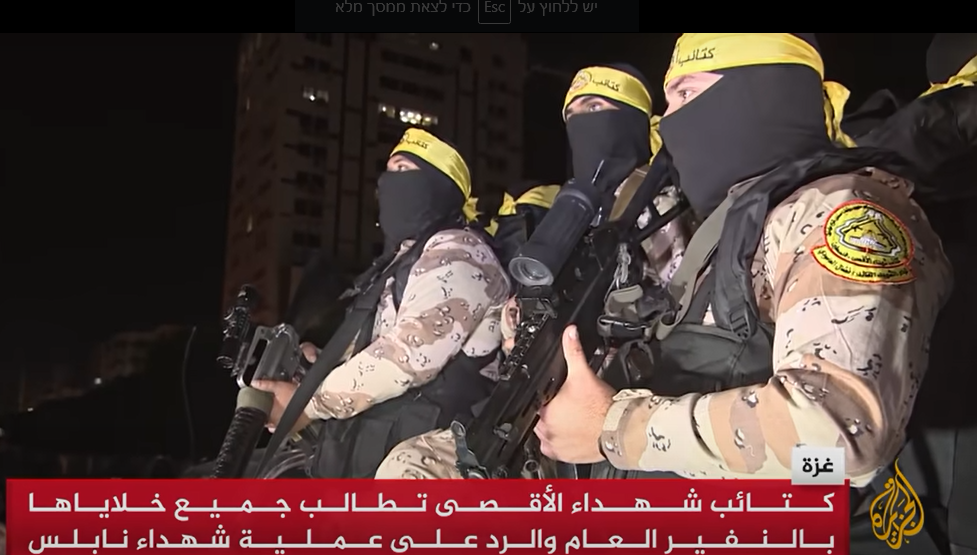On January 14, the spokesperson for Hamas’s military wing, “Abu Obeidah,” urged Palestinians to intensify attacks against Israel.
Tragically, one result of this call to action was the recent attack in Ra’anana, where a 79-year-old Israeli citizen was murdered, and 18 others were injured.
Collaborating with Iran, Hamas is also attempting to inflame tensions in Judea and Samaria by sparking fires in the region.
The goal is to create an active front, adding pressure on Israel through a potential third armed intifada.
This strategy not only seeks to halt the war in the Gaza Strip but also aims to destabilize the Palestinian Authority (PA), leading to widespread security chaos that could jeopardize settlements and the lives of hundreds of thousands of Israelis residing in them.
Israeli security officials anticipate initial attempts to attack Israelis on the main roads of Judea and Samaria, along with endeavors to infiltrate settlements, carry out massacres, and potentially kidnap hostages. Recent IDF intervention in the Adora settlement foiled such an attempt.
Beyond the evident hostility and intense incitement from terrorist organizations, the Shin Bet suggests that another contributing factor to the underlying unrest in Judea and Samaria is the challenging economic situation in PA areas.
Approximately 120,000 workers have been unable to go to work in Israel since the war in the Gaza Strip began.
There is ongoing consideration in Israel about allowing a gradual entry of several thousand laborers from Judea and Samaria, but the security cabinet is divided on the matter.
At present, the Prime Minister and the Minister of Defense lack the majority needed to make a decision, with the recent attack in Ra’anana intensifying opposition to the proposal.
Concerns among cabinet members include fears that Palestinian workers entering Israel may engage in revenge attacks following the Gaza Strip conflict and the assassination of Saleh al-Arouri in Beirut.
The rise in copycat attacks, involving trampling, live shooting, and stabbings, is becoming a discernible trend.
Senior security officials emphasize the growing influence of Hamas and Iran in Judea and Samaria, coupled with a weakening position of the PA among the Palestinian populace.
The border between Israel and Jordan remains a route for smuggling weapons, with Iran supplying significant amounts to armed terrorist groups in northern Samaria.
Terrorist groups in refugee camps, particularly in Jenin and Tulkarm, persist in attempts to produce guided rockets for potential strikes on Israeli cities.
Since the October 7 massacre, there has been a surge in shooting attacks in Judea and Samaria, resulting in the IDF neutralizing 300 terrorists.
While IDF reserve soldiers are actively engaged in counterterrorism efforts, deploying targeted UAV assassinations, the region remains on the brink of further escalation, aggravated by a severe economic crisis.




